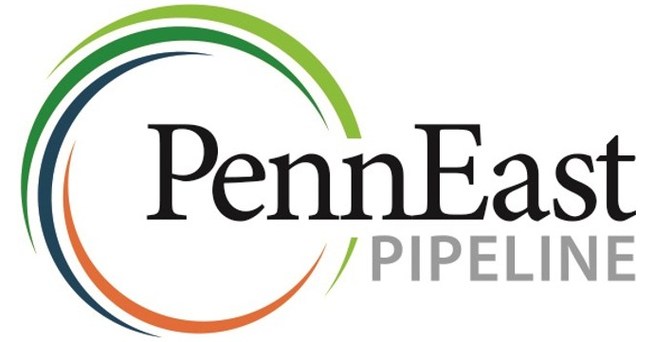After legal and regulatory hurdles, the proposed $1 billion PennEast Pipeline project has been canceled, according to the PennEast Pipeline Company.
PennEast recently suspended efforts to condemn state-owned land in New Jersey for the proposed project. The company had also previously halted the condemnation of land for the project in Pennsylvania in 2021.
PennEast spokesperson Patricia Kornick said in a statement on Sept. 27 that the company has ceased all further development of the project after having not received certain environmental permits for the New Jersey portion of the project.
“Although PennEast received a Certificate of Public Convenience and Necessity from FERC to construct the proposed pipeline and obtained some required permits, PennEast has not received certain permits, including a water quality certification and other wetlands permits under Section 401 of the Clean Water Act for the New Jersey portion of the Project; therefore, the PennEast partners, following extensive evaluation and discussion, recently determined further development of the Project no longer is supported,” she said.
In June, PennEast had received welcome news when the U.S. Supreme Court in a 5-4 decision had ruled that the PennEast Pipeline project can proceed with condemning New Jersey state-owned land for the company’s $1 billion pipeline project.
The decision by the court overturned a 2019 Third Circuit Court of Appeals decision, which denied the condemning of more than 42 parcels of New Jersey state-owned land for the company’s pipeline project.
The construction of the 116-mile long natural gas pipeline would have been from Pennsylvania into New Jersey. If the pipeline project were to be constructed, its construction would have occurred in Mercer County.
Hopewell Township would have been one of the municipalities in Mercer County impacted by the project.
“If this news is true, this is a wonderful testament to the people in New Jersey who care about their water and their environment and who have worked their tails off to stop this unnecessary pipeline,” Hopewell Township Mayor Julie Blake said. “This is a true victory.”
The New Jersey leg of the pipeline accounted for about one-third of the total project.
The project has faced pushback from not only the state, but local residents and environmental organizations.
“This is just fantastic news for our water, environment, communities and thousands of people that have been working over the last seven years to defeat this proposal,” said Jim Waltman, executive director of The Watershed Institute. “We knew from the beginning that the state has very strong environmental laws and if those were upheld that there would be a pretty strong chance that this project would ultimately be defeated.”
He added that there are a lot of ups and downs along the way.
“The whole federal regulatory process is built to approve pipelines. It’s kind of set up conflict between different levels of government,” Waltman said. “But, we were confident on a local level from the government and the residents.”
Phase One of the pipeline project would have consisted of 68 miles of pipeline in Pennsylvania. Phase Two would have finished the remaining route in Pennsylvania and New Jersey.
“The pipeline was slated to pass through Baldpate Mountain which is where we are headquartered. It was preserved after a 10-year battle with developers and it was heartbreaking to encounter another threat,” said Lisa Wolff, executive director of Friends of Hopewell Valley Open Space.
“The forests remain one of the largest and least disturbed tracts of woodland in our region, and home to rare plant and wildlife habitats. This news is a huge relief and is a tribute to the commitment of our extended conservation community.”
Acting Attorney General Andrew J. Bruck released a statement on Sept. 27 as well.
“Since Day 1, the Murphy Administration has fought the construction of the PennEast pipeline, which would have harmed New Jersey’s residents, businesses and fragile natural resources. We have always said that this pipeline was dangerous and unnecessary, and our office was proud to fight PennEast all the way to the U.S. Supreme Court in an effort to block the construction. Today’s decision is a tremendous victory for the people of the Garden State,” he said.
In previous years, PennEast faced several setbacks in the New Jersey portion of the pipeline.
In November 2019, the company made the decision to appeal its federal appeals case to the U.S. Supreme Court (SCOTUS).
The decision came in light of a November ruling by Third Circuit Court of Appeals, denying PennEast’s request to rehear a case concerning the condemning of 42 parcels of New Jersey state-owned land for PennEast’s pipeline project.
Due to that denial and opinion by the third circuit, the New Jersey Department of Environmental Protection also denied the company’s Freshwater Wetlands Permit application siting that PennEast’s application could not be “administratively complete” because of the circuit’s decision.
SCOTUS would rule in PennEast’s favor, but the company still had to secure permits from entities such as the New Jersey Department of Environmental Protection, the U.S. Army Corp of Engineers, and the Delaware River Basin Commission.
The company then halted the condemning of land in Pennsylvania and New Jersey, before making the decision to cancel the project this month.
“A huge win for long-suffering landowners, for the environment, and for everyone who worked to block the PennEast pipeline,” Congressman Tom Malinowski (D-7) tweeted on Sept. 27. “But we’re not done yet — we must reform a system that allowed this economically unnecessary project to be approved in the first place.”

